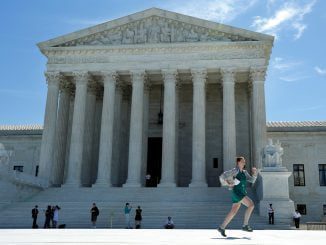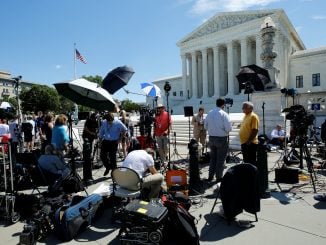
WASHINGTON, D.C. – The U.S. Supreme Court on Monday handed a victory to President Donald Trump by allowing his latest travel ban targeting people from six countries identified by the state department as “countries of concern” to go into full effect even as legal challenges continue in lower courts.
The court, with two of the nine justices dissenting, granted his administration’s request to lift two injunctions imposed by lower courts that had partially blocked the ban, which is the third version of a contentious policy that Trump first sought to implement a week after taking office in January.
The high court’s action means that the ban will now go fully into effect for people seeking to enter the United States from Iran, Libya, Syria, Yemen, Somalia and Chad. Lower courts had previously limited the scope of the ban to people without certain family or other connections to the United States.
Trump‘s ban also covers people from North Korea and certain government officials from Venezuela, but lower courts had already allowed those provisions to go into effect.
The nine-member high court said in two similar one-page orders on Monday that lower court rulings that partly blocked the latest ban should be put on hold while appeals courts in San Francisco and Richmond, Virginia weigh the cases. Both courts are due to hear arguments in those cases this week.
Two of court’s liberal justices, Ruth Bader Ginsburg and Sonia Sotomayor, said they would have denied the administration’s request.
The ban was challenged in separate lawsuits by the state of Hawaii and the American Civil Liberties Union. Both sets of challengers said the latest ban, like the earlier ones, discriminates against Muslims because the six countries in question are majority Muslim. They say the policy not permissible under immigration laws.
Trump issued his first travel ban in January targeting several countries that state department officials said would not comply with U.S. security measures. A revised one came out in March after the first was blocked by federal courts. The second one expired in September after a long court fight and was replaced with the present version.



